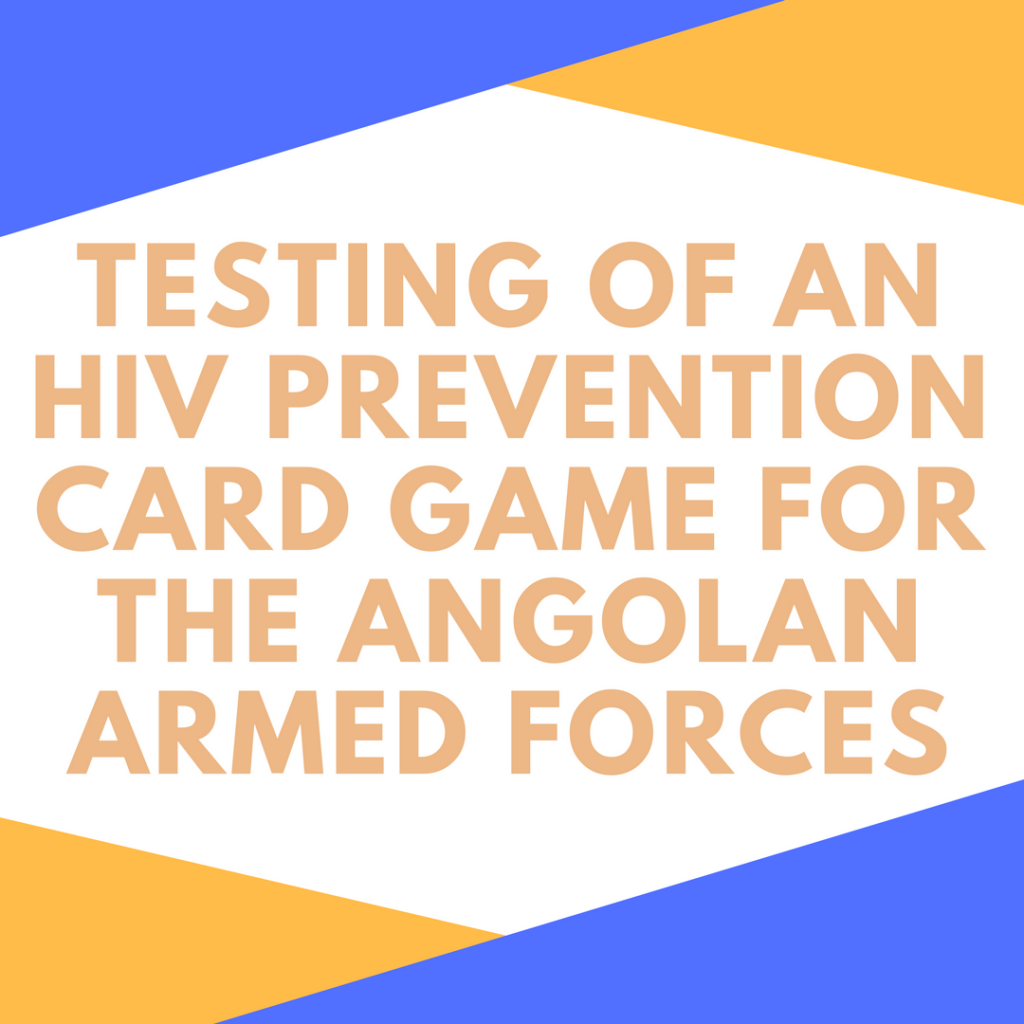
Brief overview: The goals of this pilot study are to evaluate the effectiveness and cultural applicability of a game that promotes greater awareness of HIV/AIDS prevention messages. By using a consumer driven approach and adapting innovations from computer and video gaming, a low-cost prevention tool can be produced and utilized throughout a resource-poor country that is threatened by rising HIV infections. Specifically, this proposal aims 1) To assess the added benefit of learning a novel, entertaining and culturally appropriate HIV prevention card game on HIV-related knowledge, attitudes and behaviors among Angolan soldiers receiving a standard HIV prevention intervention, and 2) To assess the diffusion of the game to others residing on the same base where the game is being taught and determine its impact on their HIV related knowledge, attitudes and behaviors.
Creating a culturally appropriate and enjoyable card game that promotes HIV/AIDS prevention has the potential to substantially increase awareness of risk behaviors and prevention methods in a high risk group. In the long-term, prevention materials that engage and entertain may have greater and longer lasting impact than other types of prevention strategies particularly in low resource settings where there are fewer opportunities for novel entertainment.
Geographical Location: Angola
Targeted risk group: Soldiers
Intervention Model: Randomized Control Trial
Research methods: Community-based randomize control trial with participants randomized to either an HIV prevention lecture or an HIV prevention lecture in which they are also taught to play the card game. Knowledge of HIV assessed at pre- and post-intervention
Local and International significance: In very low resource settings with low literate populations, low cost, low tech prevention solutions that are culturally congruent may work best. Among soldiers a card game that also teaches an HIV prevention message may be an effective strategy to increase knowledge of HIV and help reduce risk.
